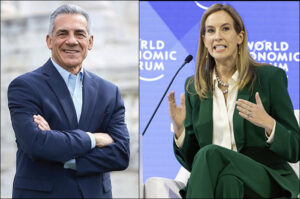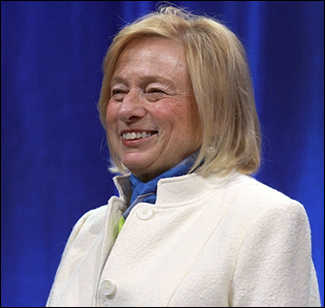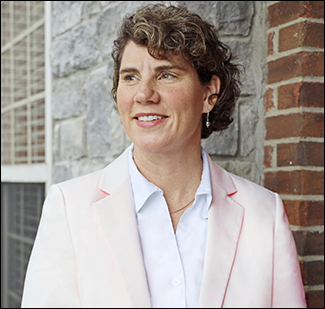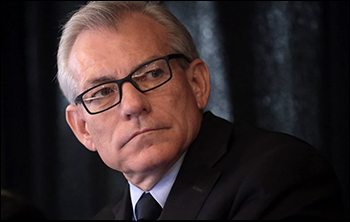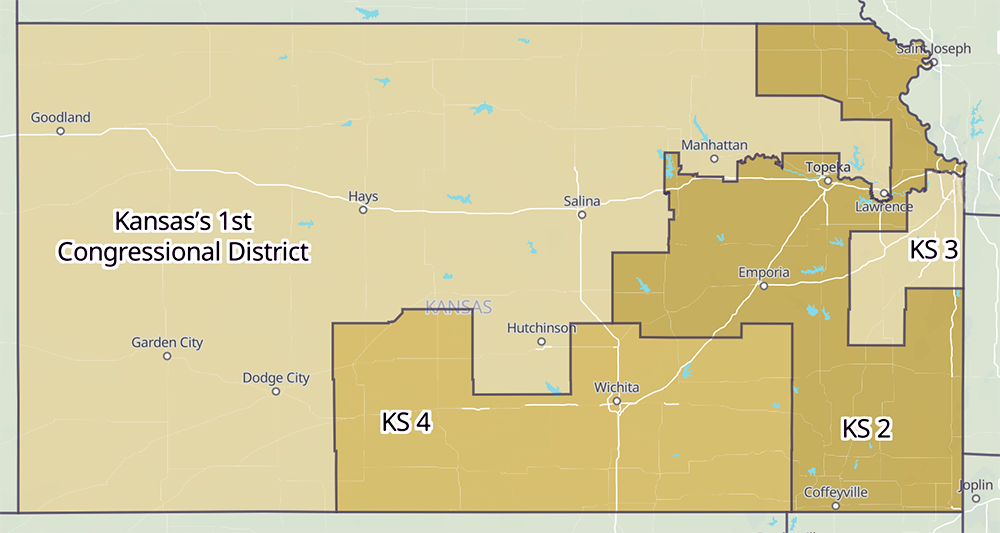By Jim Ellis — Tuesday, Nov. 4, 2025
Elections
 The major odd-numbered elections are upon us with early voting completed and election day occurring today in New Jersey, New York City, and Virginia. Polling projects a good night forthcoming for Democrats, but the available early voting statistics suggest Republicans might be stronger than the polls indicate.
The major odd-numbered elections are upon us with early voting completed and election day occurring today in New Jersey, New York City, and Virginia. Polling projects a good night forthcoming for Democrats, but the available early voting statistics suggest Republicans might be stronger than the polls indicate.
New Jersey
The open Governor’s race is the main focus on the Garden State ballot, and it may well become the most interesting contest to follow tonight.
The polling momentum has closed in Republican Jack Ciattarelli’s favor with the latest five publicly released surveys from the Oct. 25-30 period finding Rep. Mikie Sherrill (D-Montclair) holding an average 3.4 percentage point advantage. This number is down from a much higher range, usually in the upper single digits, for most of the race.
Furthermore, if the SoCal Strategies poll (Oct. 28-29; 800 likely New Jersey voters) is removed from the group because its seven-point spread (52-45 percent) is an outlier when compared with the other four (Atlas Intel, Emerson College, Quantus Insights, and Suffolk University), the Sherrill average point lead drops to 2.5.
Additionally, Ciattarelli has under-polled in his previous races, particularly in the primary earlier this year and by a large amount. Going into the five-way 2025 Republican primary, Ciattarelli’s highest preference number was 54 percent yet he ended with a 68 percent actual vote total. Should this Ciattarelli under-poll pattern continue in this year’s general election, we could see an upset.
New Jersey early voting statistics are not as available as in some other places, but Ciattarelli’s assessment that more Republicans are voting early that ever before appears correct. According to CBS News, approximately 514,500 Democrats have voted early as compared to an approximate 279,000 Republicans, and 177,000 non-affiliated and minor party voters.
These raw number figures translate into 56.5 percent of the early voters being Democrats, 30.6 percent Republicans, and 12.9 percent non-affiliated and others. While the Democrats lead the early vote count, their percentage is down from 2024 when the Dems accounted for 68.0 percent of the early voting participation numbers and 2022 when their percentage was 59.9 according to the Target Early Target Smart organization calculations.
Though the 2025 Republican number is much smaller than the Democratic percentage, it is up from 27.4 percent in 2024, but down from a 32.2 percent participation factor in 2022. The Non-affiliated/ Other category accounted for 4.7 percent of the early voters in 2024 and 7.9 percent in 2022. Therefore, the NA/O segment’s 12.9 percent early turnout is considerably ahead of the previous elections.
New York City
While Assemblyman and New York City mayoral nominee Zohran Mamdani’s (D) polling percentages are falling somewhat as Election Day dawns, the three-way candidate structure virtually assures that he will win tomorrow’s election, but likely with only a plurality of the votes.
While the majority of NYC voters are likely to choose a mayoral candidate other than the Democratic nominee, the split between former Gov. Andrew Cuomo (I) and Republican Curtis Sliwa will benefit Mamdani.
Since the race has not changed greatly since Cuomo entered under a minor party label after losing the Democratic primary, today’s outcome is unlikely to be surprising.
Virginia
In the Old Dominion’s gubernatorial race, former Rep. Abigail Spanberger is clearly favored to defeat Republican Lt. Gov. Winsome Earle-Sears and convert the commonwealth’s Governorship to the Democrats. Incumbent Gov. Glenn Youngkin (R) is ineligible to seek re-election under the only one-term limit law in the country.
The final five Virginia gubernatorial polls conducted during the Oct. 25-31 period (from Atlas Intel, Echelon Insights, Insider Advantage/Trafalgar Group, SoCal Strategies, and State Navigate) give Spanberger leads of between four and 12 points, margins she has maintained for most of the election cycle.
Yet, the early vote numbers tend to suggest an improved GOP standing. All five of the state’s congressional districts where the electorate sends a Republican to the US House have substantially improved their early vote participation rates when compared to 2021.
According to the latest available reports from the Virginia Public Access Project (VPAP), the statewide increase in early voting is just under 10 percent. All five Republican House districts, however, are up between 20 and 41.9 percent in early voting participation through Friday.
From the six Democratic districts, only two report increased turnout compared to 2021, and even this pair’s increase is below the statewide average. The other four Democratic congressional districts, at least through Friday’s count, have failed to equal their previous 2021 early voting numbers.
Since Virginia’s early voting numbers are not measured by political party preference, largely because the Old Dominion does not register voters by party, it is difficult to tell if the congressional district breakdowns accurately reflect the partisan composition of 2025 early voting.
The clue, however, that the Republican represented districts are all substantially up in early voting and most of the Democratic seats are down should suggest that Republicans are likely to outperform their polling standing.
Furthermore, it is important to remember that the Republicans won the 2021 election, so Democrats falling behind their losing benchmark numbers from the previous election is another clue that 2025 Virginia voter enthusiasm is higher on the GOP side.
The most likely outcome of tomorrow’s election, however, is a Spanberger victory, a closer Lieutenant Governor’s race, but one that still suggests a slight victory for Democratic nominee Ghazala Hashmi, and a Republican victory for Attorney General Jason Miyares, largely due to the controversy surrounding Democratic nominee Jay Jones.


